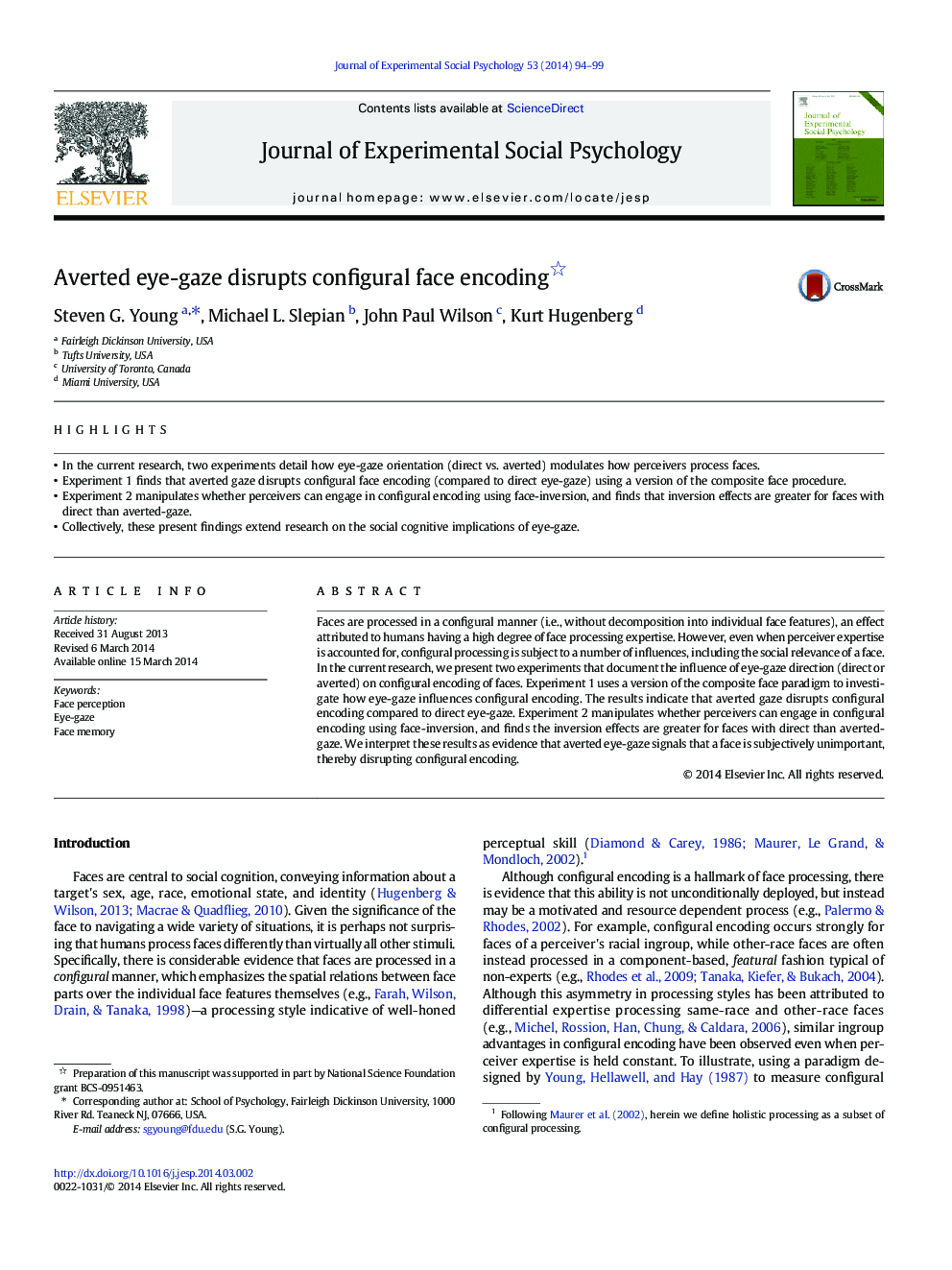| کد مقاله | کد نشریه | سال انتشار | مقاله انگلیسی | نسخه تمام متن |
|---|---|---|---|---|
| 947830 | 1475870 | 2014 | 6 صفحه PDF | دانلود رایگان |
• In the current research, two experiments detail how eye-gaze orientation (direct vs. averted) modulates how perceivers process faces.
• Experiment 1 finds that averted gaze disrupts configural face encoding (compared to direct eye-gaze) using a version of the composite face procedure.
• Experiment 2 manipulates whether perceivers can engage in configural encoding using face-inversion, and finds that inversion effects are greater for faces with direct than averted-gaze.
• Collectively, these present findings extend research on the social cognitive implications of eye-gaze.
Faces are processed in a configural manner (i.e., without decomposition into individual face features), an effect attributed to humans having a high degree of face processing expertise. However, even when perceiver expertise is accounted for, configural processing is subject to a number of influences, including the social relevance of a face. In the current research, we present two experiments that document the influence of eye-gaze direction (direct or averted) on configural encoding of faces. Experiment 1 uses a version of the composite face paradigm to investigate how eye-gaze influences configural encoding. The results indicate that averted gaze disrupts configural encoding compared to direct eye-gaze. Experiment 2 manipulates whether perceivers can engage in configural encoding using face-inversion, and finds the inversion effects are greater for faces with direct than averted-gaze. We interpret these results as evidence that averted eye-gaze signals that a face is subjectively unimportant, thereby disrupting configural encoding.
Journal: Journal of Experimental Social Psychology - Volume 53, July 2014, Pages 94–99
